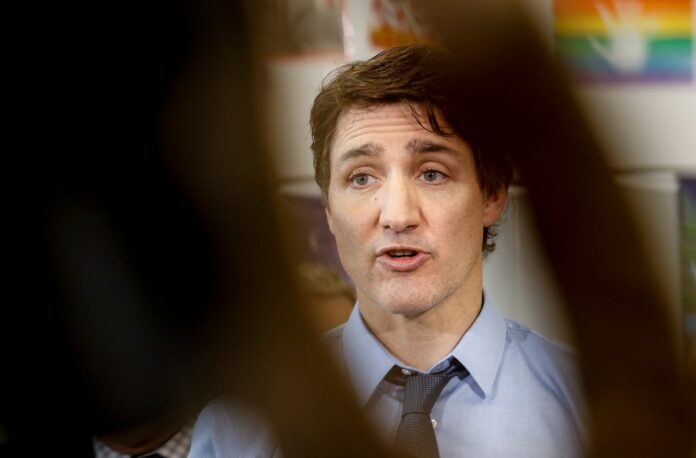“Justin Trudeau’s Tax Video: What Social Media Reveals About Our Views”
In the age of social media, politicians are turning to platforms like Twitter to spread their message and garner support. Prime Minister Justin Trudeau recently posted a video discussing proposed tax changes, which quickly gained traction with over four million views in just two days. However, the impact of this video is debatable – has it truly swayed public opinion, or just reinforced existing beliefs?
Diverse Perspectives on Tax Changes
The Prime Minister’s video highlights the Liberal claim that only 0.13% of Canadians will be affected by the proposed tax changes. However, this claim has sparked controversy and debate among Canadians. Some disagree with the tax change itself, while others question the accuracy of the numbers presented. Political ideologies also play a significant role in shaping individuals’ views on taxation.
Understanding the Influence of Social Media
A recent study published in the Journal of Behavioral and Experimental Economics sheds light on the impact of language used in tax-related tweets. The research suggests that tweets containing moral and emotional language are more likely to be shared. This trend can be attributed to the psychological concept of expectancy violation – people are more drawn to messages that go against their expectations.
The Power of Language in Shaping Views
Positive emotional language and moral arguments seem to resonate more with social media users when discussing taxes. Messages highlighting fairness and justice tend to garner more engagement, regardless of their accuracy. This phenomenon underscores the importance of critically analyzing the content we consume online and being aware of the persuasive nature of language.
Navigating Misinformation and Public Opinion
It is crucial to acknowledge that not all shared content on social media is reliable. False information about tax changes can spread rapidly, leading to misconceptions among the public. Governments can leverage sentiments expressed online to gauge public opinion and make informed policy decisions. By staying attuned to public discourse, legislators can address concerns and provide clarity on contentious issues like taxation.
Conclusion: The Power of Critical Thinking
As we navigate the complex landscape of tax policy and public opinion, it is essential to approach social media content with a critical eye. The catchy language used in tweets may not always reflect the full truth of a matter. By being discerning consumers of information, we can better understand the nuances of tax policies and contribute to informed discussions. Let’s strive to engage thoughtfully with online content and seek out diverse perspectives to broaden our understanding of complex issues like taxation.
In conclusion, the Prime Minister’s video serves as a reminder of the influence of social media on public discourse. By acknowledging the power of language in shaping views and staying vigilant against misinformation, we can foster more informed and constructive dialogue on important policy issues. Let’s commit to being critical thinkers and responsible consumers of online content to strengthen our democracy and promote well-informed decision-making.”
Reference














